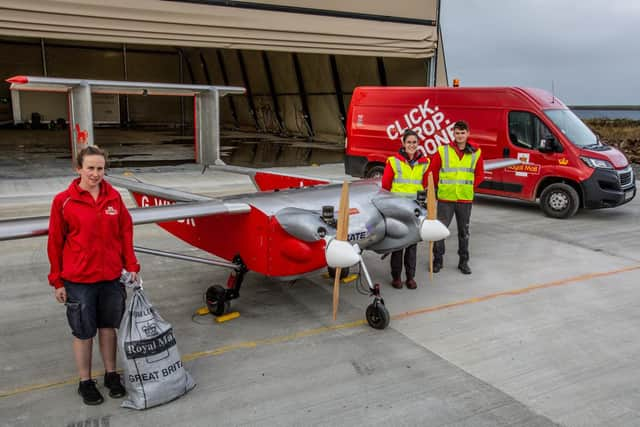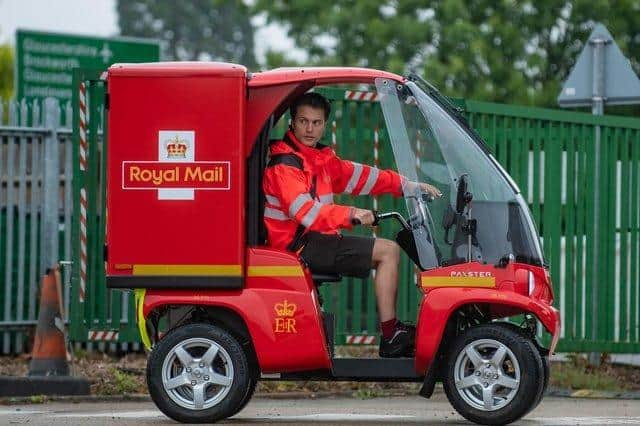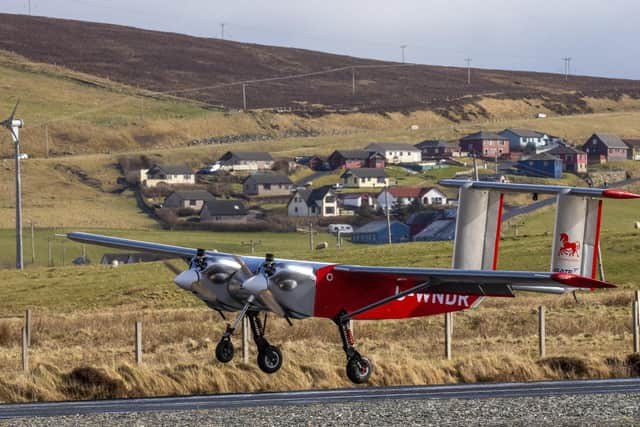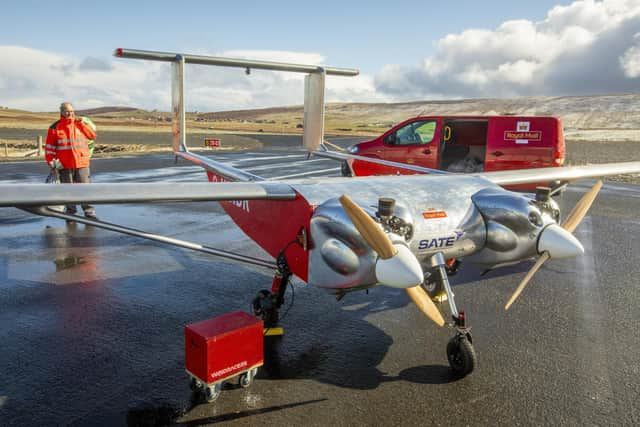Royal Mail drone fleet takes to the air for remote Scottish island deliveries
and live on Freeview channel 276
Royal Mail has announced plans to increase its use of drones for deliveries with the creation of 50 new “postal drone routes” over the next three years.
Under a partnership with logistics drone company Windracers, and subject to Civil Aviation Authority approval, the move will provide faster and more convenient services for remote communities.
Advertisement
Hide AdAdvertisement
Hide AdThe first routes for the new service include the, Shetland, Orkney, the Hebrides and the Isles of Scilly where it currently uses ferries, conventional aircraft and land-based delivery which can be affected by bad weather and even tidal conditions.


The uncrewed aerial vehicles (UAVs) – which look like giant model aeroplanes each with a 10ft wingspan – will also help further reduce Royal Mail’s carbon emissions and improve the reliability of island mail services.
Royal Mail said it was aiming to use up to 200 UAVs over the next three years, increasing to more than 500, servicing all corners of the UK.
The introduction of the new vehicles is the not first time that Scotland has been the test bed for experimentation in mail delivery.
Advertisement
Hide AdAdvertisement
Hide AdWhile under strict restrictions following the First World War, Germany was already looking to the future and into the development of rockets, which eventually led to the dreaded V1 and V2 ‘flying bombs’.


However, there was a more peaceful intent when in July 1934 rocketeer Gerhard Zucker, who was obsessed with the concept of using rockets as means of carrying mail, found himself on the tiny Outer Hebridean island of Scarp which lies just off the Atlantic coastline of Harris.
Zucker made two unsuccessful attempts at firing rocket mail between Scarp and Harris and the evidence of his failure, in the form of a pile of singed envelopes from the exploded rocket, can still be seen at the island museum.
UAV trials have been conducted for the last 18 months, making deliveries to Mull, and Kirkwall and North Ronsaldsay in Orkney.
Advertisement
Hide AdAdvertisement
Hide AdTest flights were held between Tingwall Airport in Lerwick and Unst – a 50-mile flight each way. Unst has a population of around 630 people and is Britain’s most northerly inhabited island.


Drones used in the trial can carry up to 100kg of mail for two daily return flights between the islands, with letters and parcels then delivered by the local postie.
Simon Thompson, chief executive of Royal Mail, said: “On-time delivery regardless of our customers’ location or the weather, whilst protecting our environment, is our goal.
“Even though we go everywhere, Royal Mail already has the lowest CO2 emissions per parcel delivered. This initiative will help reduce our emissions even further.”
Advertisement
Hide AdAdvertisement
Hide AdStephen Wright, chairman of the Windracers Group, said: “The middle mile of supply and logistics, especially to remote locations, has long been overlooked by the industry and is ripe for innovation.


“We’ve spent the last five years focused on developing the most commercially viable essential logistics drones so we’re truly delighted to be working with Royal Mail on this ambitious and pioneering deployment of autonomous aircraft.”
The Royal Mail also recently tested e-trikes, roughly the size of a golf buggy, in residential areas of Edinburgh as a potential lower carbon alternative to larger vans.
Comment Guidelines
National World encourages reader discussion on our stories. User feedback, insights and back-and-forth exchanges add a rich layer of context to reporting. Please review our Community Guidelines before commenting.